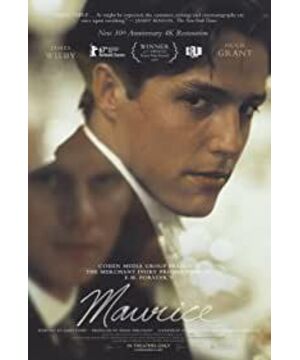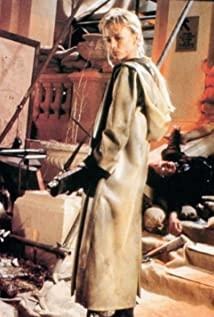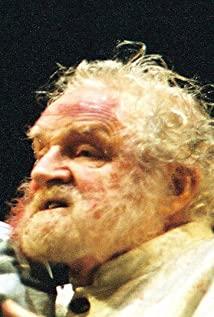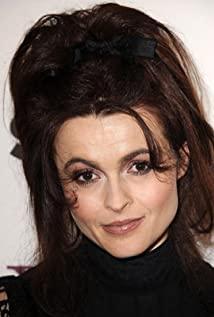In fact, I still prefer to read Foster's book. His writing is very pleasant personally, and he will also unearth a little bit of subtle irony of Foster's Englishman, no more, no less, just to make the reader comfortable. Many of his works like to use poetic sentences in the names, and the literary interest is also quite strong. However, James Ivory, his adaptations respect Foster's original work every time, but weaken the multiplicity of some characters. Perhaps due to the limitation of the length of the movie, some complex characters cannot be fully displayed, making the movie thinner than the original and easier to please the viewer. Foster's works are often stories of the upper class and happy endings. These two points can easily be caught by some acrimonious London literary critics and question the depth of his works. Now that it has been filmed, the temperament and story of the original work are kept intact, but it can't become too classic, at best it is pleasing to the eye.
Of course, it was the pleasure that made it the most comfortable gay movie I watched.
I think the biggest misunderstanding that may exist lies in the character of Clive. Perhaps Foster himself hates this character, but he will not destroy all the qualities of this character. Although Foster bluntly said that he didn't like Clive, Maurice's indirect satire of him at the end of the article showed this point, but compared to the Clive in the movie, the original one is slightly more lovable. The film detracted from his pursuit of the Greek classical spirit and Platonic reflection, and directly used it as one of Clive’s excuses for rejecting Maurice, and magnified the concept of his abandoning this relationship because of his concerns about social influence and future. This makes the character easier to read, but makes him easily a selfish villain, omitting another factor of his marriage: he does indeed have a new view and understanding of Maurice. In the film, Grant has a beard and looks more polite, and the tone of the superior family is even more disgusting compared to Wildy's gloom.
The original book is obscure (this is also one of the characteristics of Foster's writing, which he privately thinks is his more obvious advantage), which reflects his feelings about the two lovers. For Clive, more is staying in the spirit, while Scudder is more able to satisfy his physical desires. In the movie, the love between the two of them seems more sincere, perhaps thanks to Graves' performance. His handsomeness makes people's eyes bright, his simplicity and perseverance look cute, under the background of Clive's role and the operation of the plot (he came out just right), he has become a very popular character. With Clive, the description of the original work should be more delicate and fuller. However, in the scenes where Scudder and Maurice met, there was a very coordinated comradeship, especially in Scudder who were civilians and did not have the tone of Chen's house. It complements the gentlemanly Maurice.
Talking about Maurice again, Wildy is definitely the most English gentleman actor I have ever seen. Although his appearance is not too outstanding, his figure is very suitable for a gentleman and nobleman in a suit and leather shoes. Coupled with his conservative stubbornness and sensitivity, as well as his polite behavior, he feels quite British. And his every move is very in line with the temperament required by the film, worthy of the family of diplomats. I appreciate the dull pain and reservedness of Maurice. The author narrates the entire story from his perspective, so Maurice's personality is not as prominent as the two above, but after all, it is a story that unfolds around him. It can be said that this is a relatively generalized role and a role that is easy to compare. In the end, he and Scudder broke the social class restrictions. When they hugged the boathouse, they finally broke through the social barriers and their inner entanglements and contradictions.
The story here is the end of Maurice's love. I want to say that Foster is very smart to push all the contradictions into things that he doesn't have to describe in the future. It was also such a full stop, ignoring Maurice's thoughts on the two loves, but at the end of the film Clive couldn't help but look out the window and remember the old days, feeling lost.
The whole story is quite mature. From the initial light affair with Clive, Maurice met the waiter Scudder and fell in love when he was abandoned and fell into madness, and finally broke through the level of boundaries and the loved ones to get together, and perhaps accompany him to the end of his life. In the society at that time, it was still rare and advanced to have such an ending. Whether it is the original novel or the movie, the ancient and elegant British style is vividly reflected, and the scenery of Cambridge or the countryside is clear and peaceful, which adds a lot to the story.
Having said a lot, it's actually a view after reducing the contradictions of the roles as much as possible. Many people still care about the young love affair at the beginning after watching the film completely, but they think privately that whether it is for readers (especially gay readers) or Foster himself, they will be more relieved by the happy ending at the end of the film, if not such a With a happy ending, no matter how beautiful the youth is, it will only become a painful memory.
ps: Graves is so handsome><...
View more about Maurice reviews











